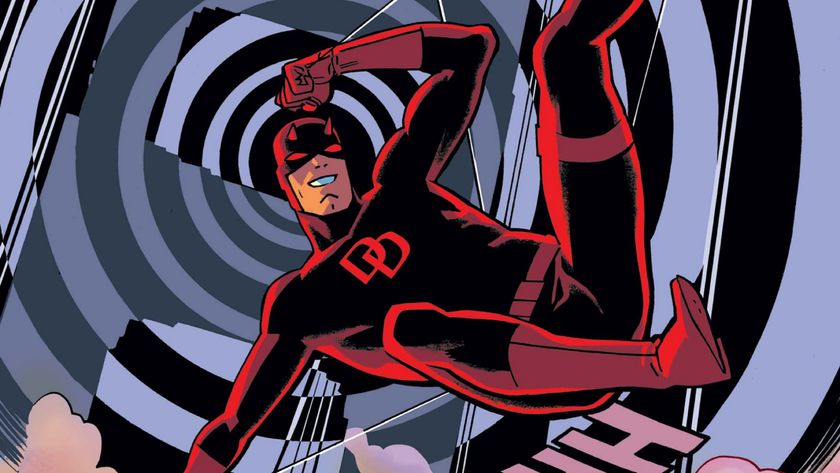Astonishingly, the British literary SF magazine Interzone is a quarter of a century old. In the latest issue of SFX , on sale 14 March, you’ll find comments from the writers who have contributed down the years to the magazine. As a taster, here are Alastair Reynolds’ thoughts on Interzone...
SFX: Help us put Interzone in context – why is it so important?
Alastair Reynolds: “The importance of Interzone really can’t be overstated. As a reader, it was one of the few places where you could find out what was actually happening in the wider world of SF. Interzone, I think, published one of the very first interviews with William Gibson. It turned me onto Bruce Sterling, a writer I’d never heard of. From the writer’s point of view, it’s been central to the resurgence of British SF and perhaps the wider resurgence of hard SF. Not everyone associated with that renewal has come through IZ, but I think you can make a pretty good cause for the magazine being the catalysing agent that made it all happen.”
SFX: How important was it to your career?
AR: “Massively important. It wasn’t just being published, great as that was. Being in Interzone helped me make friends in the SF community. Within a few months of selling my first story I was invited to Brian Aldiss’s birthday party – it doesn’t get better than that! I got to meet proper writers and editors. My first novel sale was a direct consequence of friendships and contacts established thanks to Interzone, even if it took another 10 years.”
SFX: Have you a favourite Interzone-related anecdote?
AR: “I had a nearly complete run of Interzones, apart from Issue One. Without my knowing it, my wife got in touch with [former editor] David Pringle and eventually he was kind enough to let me have one of those very rare first issues. So now I have a complete set – even though some of them are a bit tatty!”
SFX: What’s it like writing for the mag?
AR: “I only very occasionally write stories for specific markets, I usually wait until the story’s finished and then decide where to send it. With Interzone, I’m always anxious from the moment I submit the manuscript. The kick I get from an IZ sale is huge – but so is the kick in the goolies when they reject something! It still means an enormous amount to me, maybe because I can remember all those years of feeling like they were never going to buy something. It was hell, I tell you.”
SFX: How has Interzone changed over the years?
AR: “It wouldn’t have survived if it hadn’t changed. It’s become more hospitable to a certain kind of SF, compared to the early days. There were very few space-based or hard SF stories to begin with, but that gradually changed. I don’t think IZ has ever stopped publishing a certain kind of SF, though. I get an enormous kick of being published in the same magazine that also publishes Priest, Ballard and Harrison, for instance. I do wish they’d bring back the letters page, though: reading through old issues is a real treat, as you see these very cogent, long-running arguments about certain stories and articles.
FX: Anything else you’d like to add?
AR: “Let’s face it, Interzone just sounds cool, doesn’t it? For a long time I thought it was named after a Joy Division song. I didn’t know about William Burroughs.”
Sign up to the SFX Newsletter
Get sneak previews, exclusive competitions and details of special events each month!
Interview by Jonathan Wright
You can find out how to subscribe to Interzone with a special SFX offer, here .
SFX Magazine is the world's number one sci-fi, fantasy, and horror magazine published by Future PLC. Established in 1995, SFX Magazine prides itself on writing for its fans, welcoming geeks, collectors, and aficionados into its readership for over 25 years. Covering films, TV shows, books, comics, games, merch, and more, SFX Magazine is published every month. If you love it, chances are we do too and you'll find it in SFX.
Most Popular







